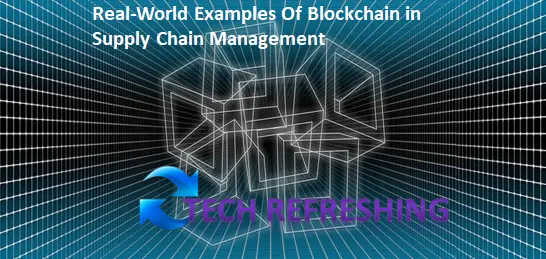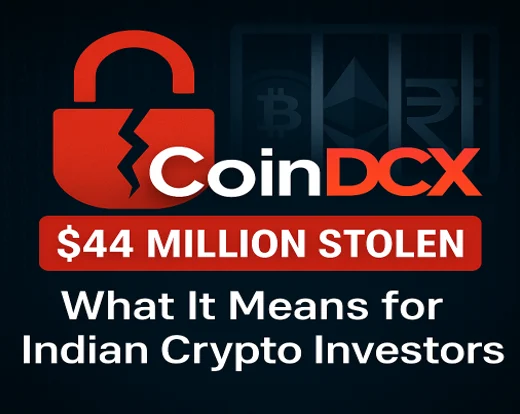
Blockchain technology has been hailed as a game-changer in various industries, and supply chain management is no exception. Supply chain management is the process of planning, executing and controlling the flow of goods and services from the point of origin to the point of consumption. This process involves multiple stakeholders, including manufacturers, suppliers, distributors, retailers and consumers. Supply chain management is critical to the success of businesses, as it directly impacts the quality of products, speed of delivery and overall customer satisfaction.
Blockchain technology, on the other hand, is a distributed digital ledger that enables secure and transparent transactions without the need for intermediaries. In essence, it is a decentralized system that allows multiple parties to access and update a shared database, providing a tamper-proof and immutable record of transactions.
When used together, supply chain management and blockchain technology can offer a wide range of advantages, including increased security, quicker transactions and greater transparency. Businesses may alter how they manage their supply chains by utilising blockchain technology, fostering more efficiency, trust and collaboration.
In this blog post, we will explore the ways in which blockchain technology can improve supply chain management, real-world examples of blockchain in action, challenges and potential barriers to adoption, and future opportunities for innovation. By the end of this post, readers will have a better understanding of the potential of blockchain in supply chain management and the opportunities it presents for businesses across various industries.
How blockchain technology can enhance supply chain management

Transparency and Traceability of Products:
One of the primary benefits of blockchain technology in supply chain management is increased transparency and traceability. The distributed nature of the blockchain means that every transaction is recorded and can be accessed by all parties involved in the supply chain. This provides a tamper-proof record of the movement of goods and products, ensuring that each stakeholder can trace the history of the product from its origin to its destination. This makes it easier to identify and resolve issues such as quality control problems, counterfeit products or illegal activities such as human trafficking.
Improved Security and Reduced Fraud:
Utilizing the cryptographic capabilities of blockchain, businesses can ensure secure and unalterable transactions on a transparent platform, thereby reducing the risks of fraud and unauthorized access. The tamper-proof nature of the blockchain technology helps safeguard the data from interception or modification, which can deter fraudulent activities such as counterfeit goods or financial fraud, providing an extra layer of security.
Streamlined Transactions and Reduced Costs:
By getting rid of middlemen like banks, brokers, and other third parties, blockchain technology can simplify transactions. The blockchain unites all parties engaged in the supply chain through a decentralised network, enabling quick and effective transactions without the use of middlemen. This can aid in lowering the costs connected with middlemen, hence lowering the supply chain’s overall cost.
Better Collaboration and Coordination Among Stakeholders:
Better collaboration and coordination between supply chain stakeholders may be made possible by the decentralised and transparent nature of the blockchain. Blockchain technology enables increased visibility and coordination amongst stakeholders, including manufacturers, suppliers, distributors and retailers, by offering a shared database that can be accessed and updated by all parties. This may result in better communication, quicker dispute resolution, and increased supply chain effectiveness.
Ultimately, the fusion of blockchain technology and supply chain management has the power to revolutionise the way firms run by enhancing supply chain efficiency, security and transparency. Food, healthcare, and retail are just a few of the businesses that potentially profit from blockchain technology.
Real-World Examples of Blockchain in Supply Chain Management

Several businesses across various industries have already started implementing blockchain technology in their supply chain management processes. Here are a few examples of how blockchain is being used in supply chain management:
Walmart’s Use of Blockchain for Food Traceability:
Walmart declared in 2018 that it would leverage blockchain technology to enhance food traceability in its supply chain. The system allows Walmart to trace the source of its produce from the farm to the store, simplifying the process of detecting and withdrawing contaminated items during a food safety crisis. With the implementation of blockchain technology, Walmart can ensure heightened transparency and traceability of its food products, leading to enhanced food safety and a reduction in the chances of foodborne illnesses.
Maersk’s Blockchain Platform for Container Tracking:
Maersk, the world’s largest container shipping company, has developed a blockchain platform that enables it to track the movement of goods across its supply chain. The system, known as TradeLens, connects various stakeholders involved in the shipping process, including ports, shippers and customs officials, providing a more efficient and transparent system for container tracking. By using blockchain technology, Maersk can reduce the amount of paperwork and manual processes involved in container tracking, ultimately improving efficiency and reducing costs.
De Beers’ Blockchain Initiative for Tracking Diamond Provenance:
The world’s biggest diamond producer, De Beers, has adopted a blockchain platform, called Tracr, to trace the origin of its diamonds, enhancing transparency and traceability in its supply chain. The Tracr system allows De Beers to monitor the journey of diamonds from the mining stage to the retail point, ensuring that every diamond is ethically sourced and free from conflict. Utilizing blockchain technology, De Beers can offer enhanced transparency to consumers and ensure that its diamonds are responsibly and ethically obtained.
Overall, these instances show how blockchain technology has the potential to improve supply chain management by providing more efficiency, traceability, and transparency across a range of industries. Businesses may increase the quality of their products, lower the danger of fraud and contamination, and ultimately give their customers more value by utilising blockchain technology.
Challenges and Potential Barriers to Adoption

Although the advantages of blockchain technology in supply chain management are evident, companies may face various obstacles and potential hindrances to adoption. Here are some of the key challenges that businesses may confront while incorporating blockchain in their supply chain management:
Lack of standardization and interoperability:
The foremost challenge of incorporating blockchain technology in supply chain management is the absence of standardization and interoperability among various blockchain platforms. Presently, there exist multiple blockchain protocols and platforms, each having its distinct set of principles and specifications. This can create difficulty for companies in implementing blockchain technology and collaborating with other stakeholders, mainly if they are using diverse blockchain platforms. To surmount this challenge, businesses may have to create interoperable blockchain systems or adopt shared standards.
Complexity and technical expertise required:
The complexity and technical know-how needed to create and administer blockchain systems present another difficulty for supply chain management using blockchain technology. Because blockchain technology is still in its infancy, there aren’t enough qualified people with the requisite technical know-how to create and maintain blockchain systems. As a result, companies could need to spend money on staff training or on consulting fees to assist them in implementing and managing blockchain systems.
Cost and scalability concerns:
The price and scalability of blockchain technologies represent another possible roadblock to adoption. Long-term benefits of blockchain technology include cost savings and transaction efficiencies, but setting up and maintaining a blockchain system can require a sizable upfront investment. In terms of computer power and storage, blockchain technology can also be resource-intensive. In order to incorporate blockchain technology in their supply chain management procedures, firms may need to carefully weigh the costs and benefits.
While there are significant benefits to adopting blockchain technology in supply chain management, there are also potential challenges and barriers to adoption that businesses should be aware of. By carefully considering these challenges and working to address them, businesses can leverage blockchain technology to improve the transparency, traceability and efficiency of their supply chain management processes.
Future Outlook and Opportunities

The future outlook for blockchain technology in supply chain management is promising, with many potential use cases and opportunities for collaboration among stakeholders. Here are a few of the key trends and opportunities to watch in the coming years:
Emergence of new use cases and applications:
As the development and maturation of blockchain technology continues, it is likely that new applications and use cases will emerge in the realm of supply chain management. Some possible areas for growth include utilizing blockchain for inventory management, contract management, and ensuring regulatory compliance. Moreover, there is a possibility of incorporating blockchain alongside other emerging technologies, such as artificial intelligence and the Internet of Things, to further optimize supply chain management processes.
Collaboration and partnerships among stakeholders:
One of the key strengths of blockchain technology is its ability to enable collaboration and partnerships among stakeholders. We should anticipate more companies and organisations collaborating to create and execute blockchain-based supply chain solutions. Collaborations between firms operating in the same sector as well as alliances between corporations and governmental bodies or nonprofits may fall under this category.
Potential impact on sustainability and ethical supply chains:
By enabling better product transparency and traceability, blockchain technology has the potential to revolutionise supply chain management. This may have a tremendous effect on ethical and sustainable supply chains, empowering customers to make better purchasing decisions and holding companies responsible for their social and environmental effects. Businesses may increase the sustainability of their supply chain and satisfy the growing demand for ethical and sustainable products by utilising blockchain to trace and verify the origin and production processes of products.
The future of blockchain in supply chain management is full of potential and opportunity. As businesses continue to explore new use cases and collaborate with other stakeholders, we can expect to see significant improvements in the transparency, efficiency and sustainability of supply chain management processes.
Conclusion
In this blog post, we have explored the potential of blockchain technology in supply chain management. We began by defining blockchain technology and giving an overview of supply chain management. We then discussed how blockchain technology can improve supply chain management, including greater transparency and traceability of products, improved security, streamlined transactions, and better collaboration among stakeholders.
We also looked at several real-world examples of blockchain in supply chain management, including Walmart’s food traceability platform, Maersk’s blockchain for container tracking, and De Beers’ blockchain initiative for tracking diamond provenance.
We then discussed the challenges and potential barriers to adoption, including the lack of standardization and interoperability, complexity and technical expertise required, and cost and scalability concerns. Finally, we explored the future outlook and opportunities for blockchain in supply chain management, including the emergence of new use cases and applications, collaboration and partnerships among stakeholders, and the potential impact on sustainability and ethical supply chains.
In conclusion, by enhancing efficiency, security and transparency in the supply chain, blockchain technology has the potential to change this industry. Notwithstanding difficulties and potential adoption obstacles, companies that are ready to engage in blockchain technology can earn a considerable market edge. We can anticipate that as the technology develops and matures, additional use cases and partnerships will materialise, further promoting the adoption of blockchain in supply chain management.







